An old border village where there was a Jewish congregation.
“Prosto przez Prostki” A very useful book has been published (in Polish – hopefully soon in other languages too)
About the Autor Stefan Marcinkiewicz, an activist in local history and politics
Planning of a memorial plaque with the names of the Jewish families on the site of the cemetery
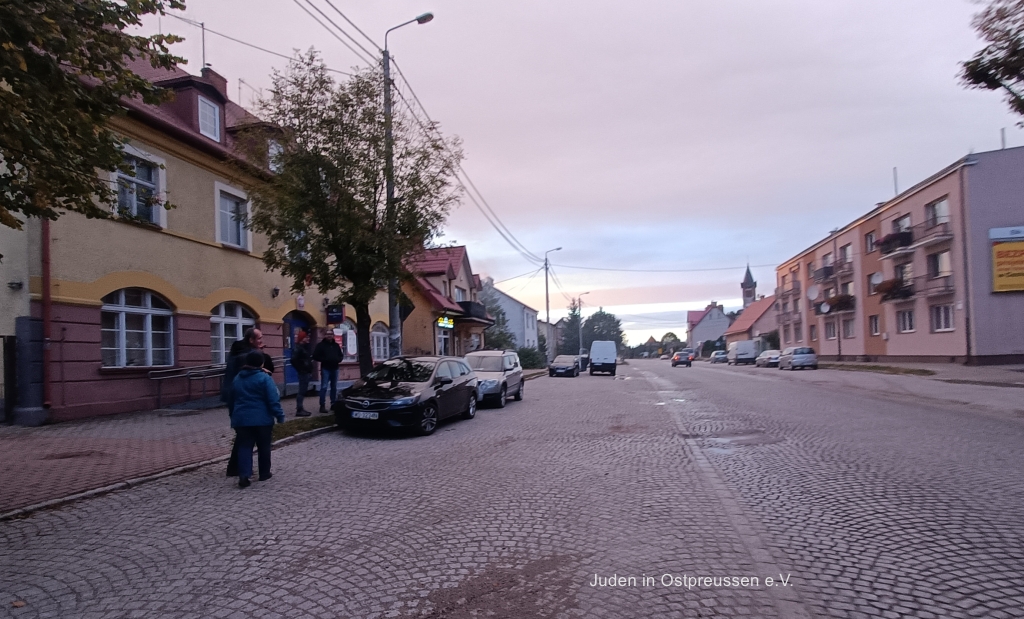
Border Village
Historical location: On the south-eastern route from Königsberg to Bialystok (and on to Grodno and Minsk), on the border with Poland, between the former German town of Lyck (now Ełk) and the Polish town of Grajewo with a large Jewish population.
In Prostken was by East Prussian standards the proportion of Jews in the population at times very high, up to 7%, and due to the immediate proximity to the border, well-known Jewish families had branches here as traders, freight forwarders, translators and innkeepers. This small private community had a house of prayer, established a cemetery and employed a teacher and cantor.
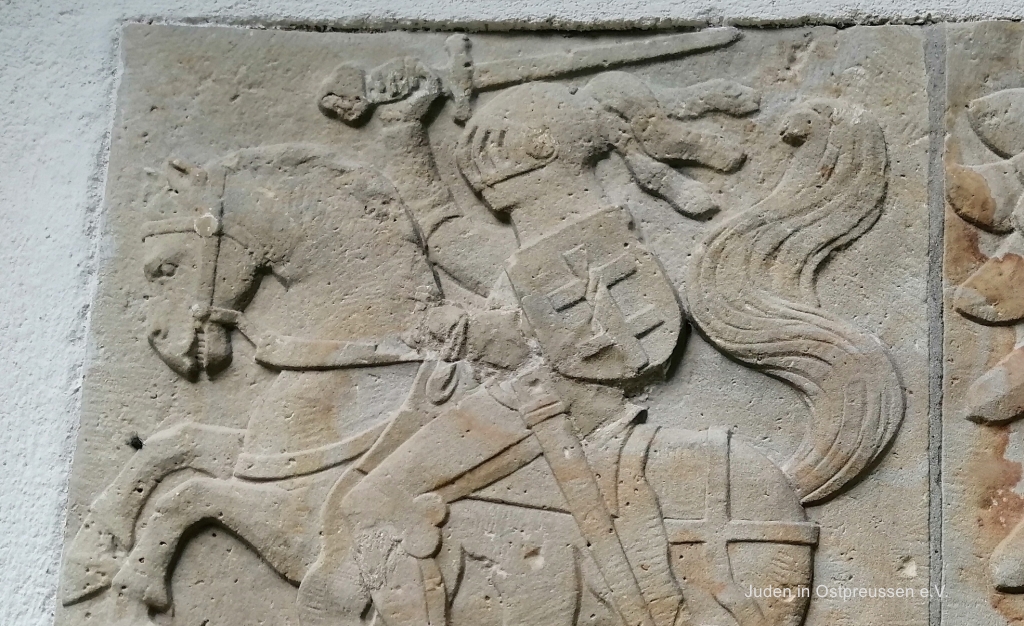
In Pruski there is a magnificent border column from 1545, with which a duke marked the border. The construction of the East Prussian Southern Railway in 1871 had an impact on the village when a connection with Białystok was established. Between 1941 and 1945, there was a prisoner of war camp on the border, which operated under six different names and was linked to crimes committed against prisoners of war and Jews. The changes that took place during the era of the People’s Republic are also examined in the book.
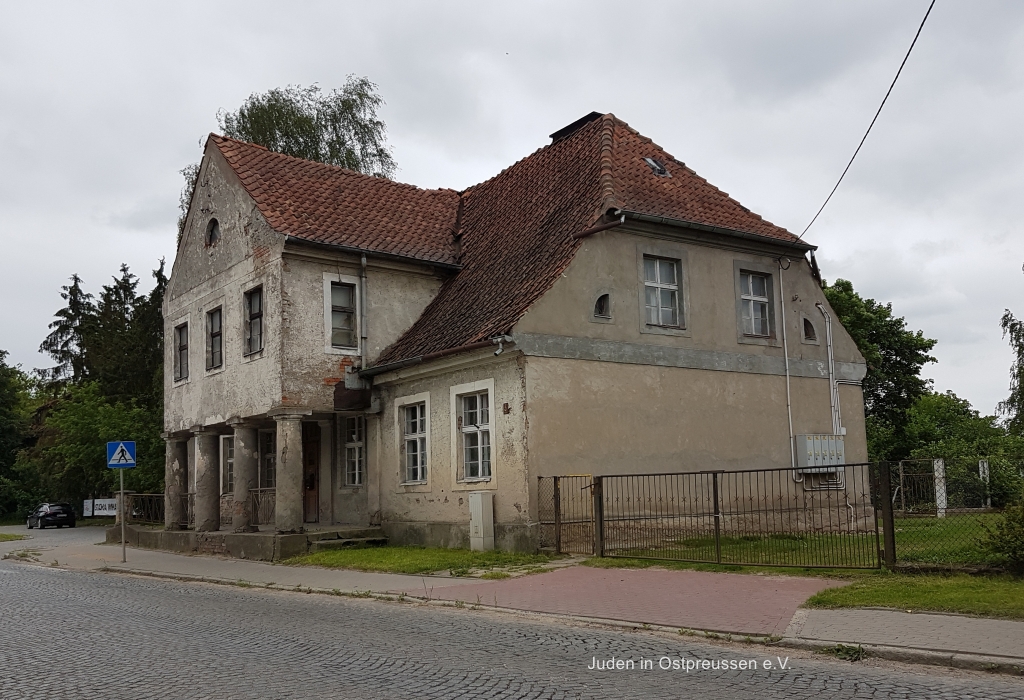
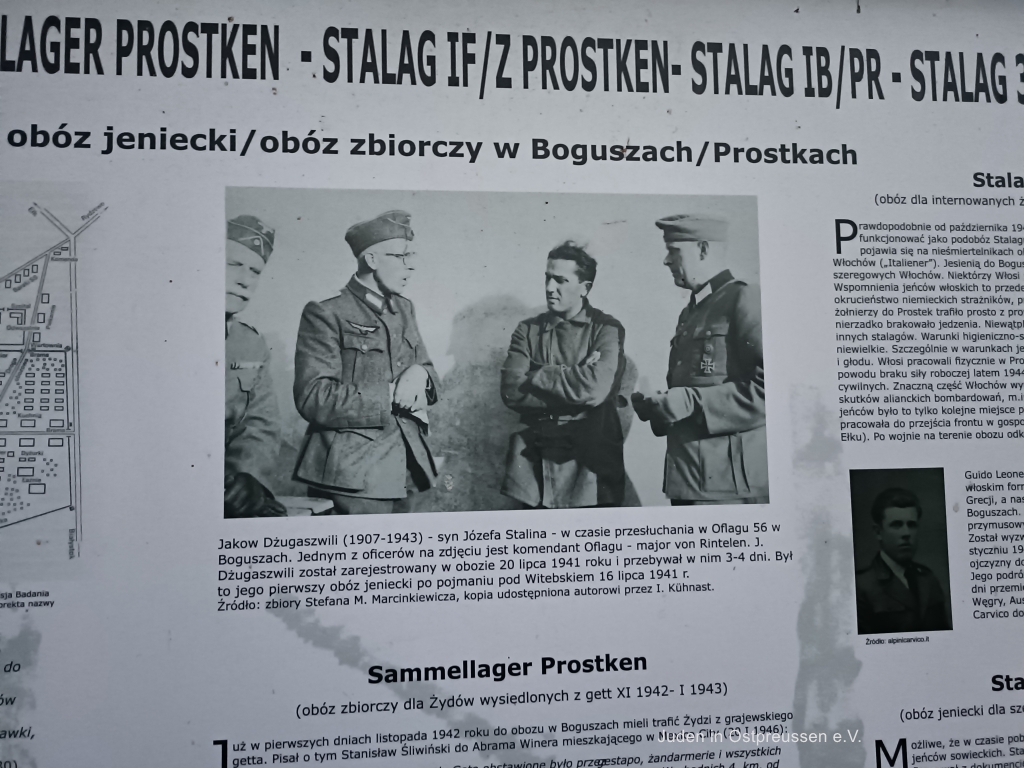
About the Book
Straight through Prostken is the title of a Polish book about an unusual village in East Prussia, which was a very lively border town for centuries and is now called Proski. A place that you should not drive through too quickly, as it is extremely rich in a wide variety of stories. Dr. Stefan M. Marcinkiewicz’s book could be a very good travel companion. The author provides a concise but informative account of numerous historical events that took place here. Each thematic chapter begins with details of a building in Prostki, which forms part of the narrative. This allows the reader to take a tour of the place through space and time on their own.
A review of this book was published in Preußenland, Jahrbuch 14 (Yearbook) 2023 of the Historical Commission for East and West Prussian Regional Research (among others). Ms. Ruth Leiserowitz writes: “(the author) has spared no effort in searching archives and the relevant press for suitable historical photos, newspaper advertisements, drawings, facsimiles and illustrations. and thus underpins the concise descriptions in a multi-faceted way and adds to them, so to speak, the “sound of the time”.
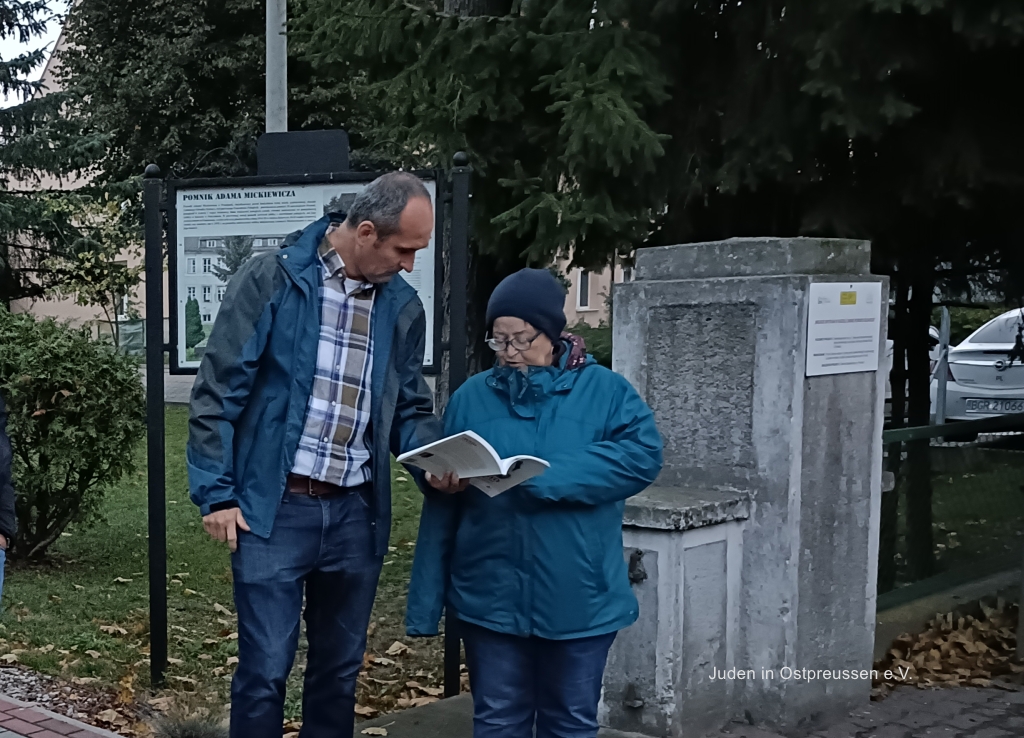
About the author
Stefan M. Marcinkiewicz is a regional sociologist and assistant at the University of Warmia and Mazury (Olsztyn), as well as a research assistant at the Historical Museum in Ełk and is also an active local politician.
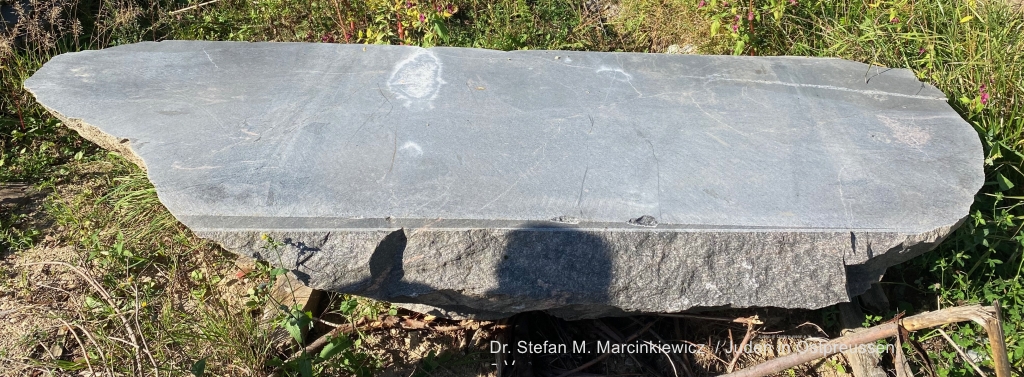
Plans to erect a memorial plaque at the site of the cemetery with the names of the town’s Jewish families.
If sufficient funds can be raised, a 2.5 x 1.2 m stone with a complete inscription in three languages and all names will be placed vertically. The forestry administration and local authorities have given their approval. An initiative of the following associations: Heimatfreunde Elks (Lötzen), Kreisgmeinschaft Lyck and the association Unser Prostki (Prostken). The association Juden in Ostpreussen e.V. would also like to support this project with donations, to keep the memory of the Jewish families of the village alive in dignity. If you would like to support this, you will receive a tax-deductible donation receipt recognized by the German tax authorities.
